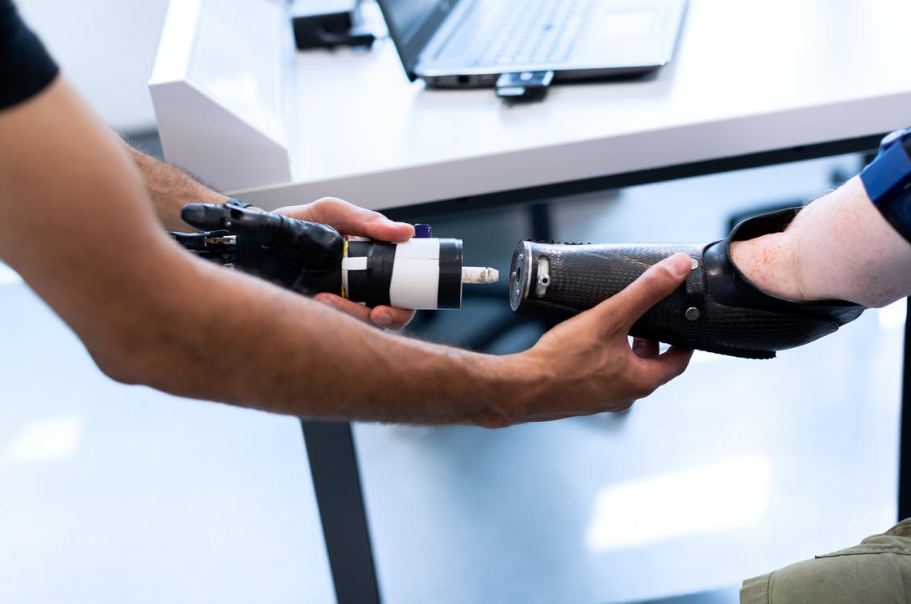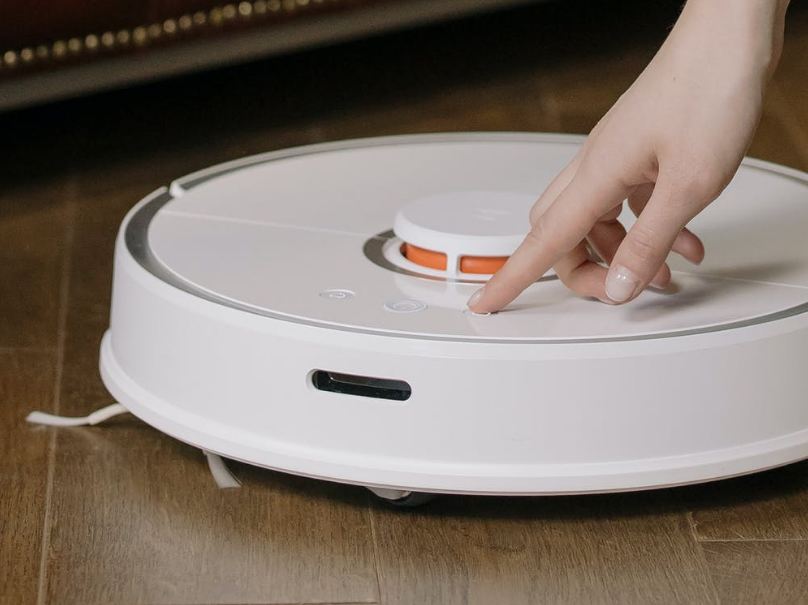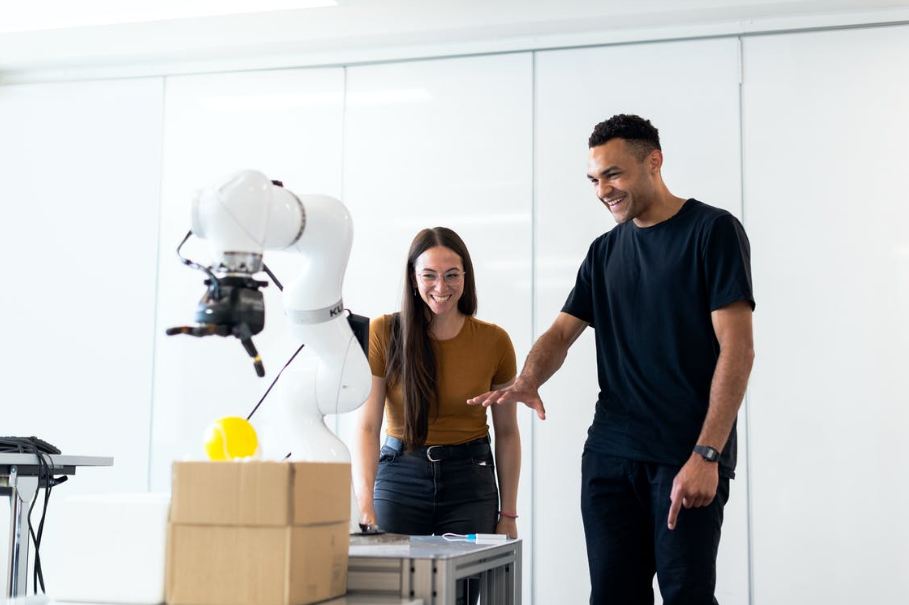Every year, we get a fascinating opportunity to talk about which companies are making waves in the world of robots and technology. As the world evolves at a lightning pace and automation spans everywhere, it’s critical to keep tabs on who’s contributing to this wonderful marvel and attempting to do something innovative. The robotic companies on our list have been dominated the robotics industry for the past few years and are expected to continue doing so in 2021. We can confidently say that these companies have achieved new feat and their robots are now working in sectors from banking to construction and retail, and more. The robotic revolution is here – the firms below are a testament to this statement.
List of Top X Robotic Companies Worldwide
1. IRobot
IRobot Corporation is a robotics company with a market capitalization of $2.4 billion. This year, the stock price has risen more than 75%. IRobot Corp maintained continuous earnings of $1.06 per share in the second quarter of 2020. According to Yahoo Finance, IRBT’s rolling P/E ratio is less than 16.
Naturally, the company has 22 hedge funds in its portfolio, which is a three-fold increase over the first quarter. The Quant Two Sigma hedge fund holds the largest IRBT stake in our database. 2.5 years ago we made a headline call about IRBT in an article called Rise of the Machines: Why It’s Time to Invest in Robots.
2. Digital dream lab
There was news in Robot Report that Digital Dream Labs acquired Anki’s assets in December 2019. Startup tech has ambitious plans to revive all Anki product lines in the order of Overdrive, Cozmo, Vector by Christmas 2020. Founder H. Jacob Ganchar also mentioned potential subscription-based models, open-source Vector 2.0, and other initiatives that he believes will help build a sustainable portfolio of toy robots.
Anki closed abruptly in April 2019 and has generated sales of $325 million since its founding in 2010. If Digital Dream Labs fulfills these promises and revives its product line, it will be a real story and will make the more than 6.5 million Anki customers very attractive. Happiness.
3. 2U, Inc.
2U is an educational technology company providing front-end and server-side SaaS cloud services to universities. Released by 2U, Inc. in August. The company aims to become a leader in the digital transformation of the higher education market.
At the end of June, 2U Inc was part of a portfolio of 24 hedge funds. At the end of March, there were only 14. Hedge Fund Size D.E. Shaw and Two Sigma are among the top 3 hedge funds for the bullish TWO. Greenvale Capital has launched the largest new position in TWOU among hedge funds tracked by Insider Monkey. In 2020, TWOU’s share exceeded 55%.
4. Trimble Inc.
Trimble looks like an old industrial equipment company that wants to move to a software subscription program. Boston Dynamics and Trimble also announced a strategic alliance to merge the Boston Dynamics Point Robot platform with data acquisition sensors”. Trimble’s ultimate goal is to destroy the construction market.
At the end of June, TRMB was included in the portfolio of 26 hedge funds, up 6 over the previous 3 months. General Investment Management Al Gore was the largest shareholder of the robotics company with a stake of $495 million at the end of June.
5. Freedom Robotics
Freedom Robotics integrates development and management tools into Cloud Robotics Management (RMS) software to help prototype, build, operate, and scale robotic vehicles. These cloud-based tools will become important as more robots launch and prepare to expand. Instead of instructing their employees to develop a complete software package, companies can use these types of tools to market faster and easier.
Joshua Wilson, CEO of Freedom, said: “A lot of people are stuck building their equipment and infrastructure and are spending 90% of their time working on it.” You’re implementing something (which rarely works). “Only 10% interact with consumers and customers to create the products people need.”
6. Intuitive Surgical, Inc.
Intuitive Surgical, Inc. is famous for its Da Vinci surgical system in the United States and abroad. The company’s market capitalization is $85 billion. Only this year, Intuitive Surgical, Inc. (NASDAQ: ISRG) is over 23%. Despite a significant decline in the number of scheduled surgeries and diagnostic procedures due to the coronavirus pandemic, ISRG reported adjusted earnings per share of $1.11 in the second quarter and $2.77 in the third quarter. We expect ISRG to approach $10, equivalent to P/E 72, by 2020.
52 hedge funds outperformed Intuitive Surgical, Inc. At the end of the first quarter, the number fell to 43 at the end of the second quarter. The three largest holders of ISRG hedge funds are billionaires.
7. Outrider
Currently, there are 50,000 trucks in the United States handling cargo containers and truck trailers in warehouses or distribution centers. Colorado’s outrider today came out of stealth mode to automate this truck with a new level 4 autonomous electric car. Car Robots are being used there.
Outrider, formerly known as Aztec, aims to help distribution stations support full truck trailers moving quickly between warehouse doors and public roads. The company said that many of the processes that make up warehouses are passive, inefficient, and risky.
8. AI Refraction
AI unveiled the Rev-1 deployment robot in mid-2019. The Rev-1 looks like a junction between a smaller Starship deployment robot and a larger autonomous Nuro haul vehicle. It can work on sidewalks and the street, weighs 100 kg, has a top speed of 15 km/hr, and currently costs $5,000. The REV-1 has a GPS, 12 cameras, and sensors that allow you to navigate the surroundings.
According to Refraction’s founder Matthew Johnson-Roberson, services like DoorDash and Grubhub cost a restaurant about 30% of all reservations. For consumers, shipping services usually cost $3 to $5 plus a tip, he said. Reflux raises restaurants from 10% to 15%, and consumers raise $3. In January, Refraction launched a pilot program for food distribution in Ann Arbor with four restaurants and hundreds of members. It plans to expand to two other cities within six months. Regardless of cost, in February 2019, Nuro raised $940 million from Softbank.
9. Robust AI
Robust AI was first introduced at the 2019 Robotics & Expo Summit in a keynote speech by co-founder Henrik Christensen. The company is trying to create an industry recognition platform that is common sense for robots. This is not an easy task. Few robots in the real world are clever, often fragile, and difficult to program.
Co-founder Gary Marcus told The Robot Report, “There is no universal tool that helps robots make decisions in an open environment.” Marcus said security AI will use a hybrid strategy to create a cognitive platform that combines multiple approaches, including deep learning and symbolic AI.
Along with Christensen and Marcus, Robust AI plays a great role in founders, including Mohamed Amer, Rodney Brooks, and Anthony Jules. Robust AI has multiple jobs at Palo Alto.
10. Scaled Robotics
Most large construction projects are too budget-friendly and take longer to complete. Although $10 trillion per year in the global industry, commercial construction is one of the least automated markets. But this is starting to change. Barcelona’s Graduate Robotics creates mobile robots that move around construction sites to collect 3D maps. These maps are uploaded to the cloud and compared to the build model to track progress and quality to find potential errors.
Scaled Robotics said its robots can reduce errors and improve overall project efficiency. It uses a robot as a service (RaaS) model and provides robots and software every month. The company is set to deliver these robots to B2B users in the near future, helping reduce defects in various industries.
Conclusion
Paradigm shifts courtesy of the robotic advancements globally are resulting in new innovations at frequent intervals. With the work being performed at these companies, robots are set to defy intelligence in their own unique style. As the days go by, we expect more and more robots to make way into teams, workplaces, and manufacturing units, making production easier than it ever used to be. The new advancements are also expected to define the dynamic of competition, ownership, and more in 2021 and beyond.



